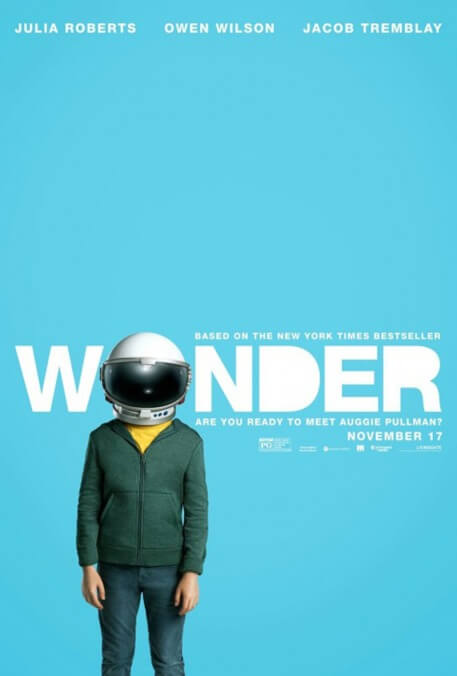What keeps Wonder from becoming a total diabetic coma of a movie is its episodic structure, built around a period of time (Auggie’s first year in a “real” school with other kids) rather than a specific conflict and its resolution (bullies and fitting in, obviously). The result is something akin to a Hallmark version of Richard Linklater, an extended stay with Auggie and his family that shifts perspectives between Auggie, his long-suffering older sister Via (Izabela Vidovic), his first—and for a time, only—friend Jack Will (Noah Jupe), and Via’s estranged best friend Miranda (Danielle Rose Russell). The multiple points of view add some welcome complexity to the saccharine overarching narrative, which posits Auggie as a kind of living good-luck charm who inspires the best in everyone he meets. From Via’s perspective, he can even be a selfish little brat sometimes.
That’s not to say that the character development is outstanding all around. The adults in particular are underbaked to the point where we don’t know exactly what Auggie’s dad Nate (Owen Wilson) does for a living, but it must be lucrative to afford a spacious Brooklyn brownstone on a single income. Julia Roberts has slightly more to work with as Auggie’s nervous wreck of a mother Isabel, intent on finishing her master’s thesis after abandoning her career in art education to tend to Auggie and his many medical problems. And while the POV characters are given relatively rich inner lives, their classmates are sorted into categories like “child actor” and “rich kid with mean, presumably Republican mom.”
The overwhelming impression walking out of the theater after seeing Wonder is, “well, that was nice.” The Pullmans seem to genuinely love each other, which is nice. The cast is multi-ethnic without making a big deal about it, which is nice. The cinematography, bright and unadventurous save for one Playtime-inspired overhead shot, is nice. The music, cheerful and unobtrusive and making liberal use one of the The White Stripes’ nicest song, “We’re Going To Be Friends,” is nice. The fantasy sequences, featuring characters for which Disney, not known for being especially nice about its licensed properties, must have charged quite a bit of money, are nice.
Even the bullying Auggie endures at school is, honestly, not that bad: Not that his experience has to be Stephen King-level traumatic to evoke sympathy or anything, but plenty of kids have to deal with one little jerk who calls them names. Perhaps that’s the point. Perhaps, even though he looks different from everyone else, Auggie is just a regular fifth-grader who likes Star Wars and science and hanging out with his friends. People staring at him on the street aside, his experiences are, by and large, pretty normal: He’s upset when the family dog dies, he’s afraid to go to school at first but eventually blossoms, he could probably stand to be nicer to his older sister. And maybe the world does need more nice, and we could all stand to be a little kinder to each other. But like a glass of warm milk, some have an easier time digesting this sort of thing than others.

 Keep scrolling for more great stories.
Keep scrolling for more great stories.
